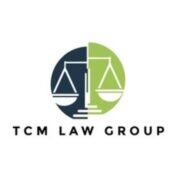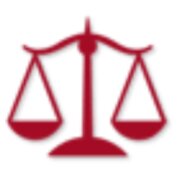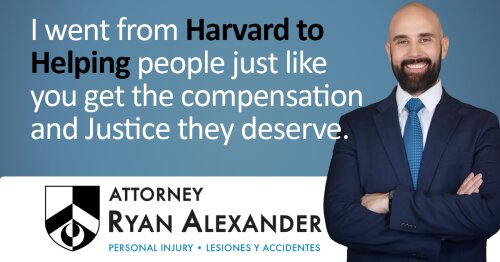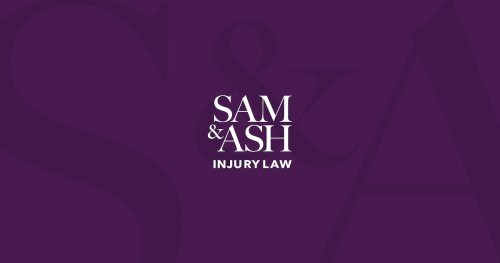Best Personal Injury Lawyers in Las Vegas
Share your needs with us, get contacted by law firms.
Free. Takes 2 min.
List of the best lawyers in Las Vegas, United States
About Personal Injury Law in Las Vegas, United States
Personal injury law covers legal disputes that arise when one person is injured because of another person or entity's negligence, intentional act, or strict liability. In Las Vegas, personal injury claims can arise from motor vehicle collisions, slip-and-fall incidents on commercial property including hotels and casinos, medical malpractice, product defects, dog bites, workplace injuries involving third parties, and wrongful death actions.
Like the rest of Nevada, Las Vegas personal injury matters are guided by state tort law principles - duty, breach, causation, and damages - and are resolved through insurance settlements, arbitration, mediation, or, if necessary, lawsuit and trial in Nevada courts. Many injured people handle small claims directly, but more serious cases commonly involve attorneys working on a contingency-fee basis, meaning you pay legal fees only if you recover compensation.
Why You May Need a Lawyer
There are many situations where hiring a personal injury lawyer in Las Vegas can make a real difference:
- Severe injuries or long-term disability - complex medical evidence and large damages require legal expertise to value the claim accurately.
- Multiple liable parties - when more than one person or company may share fault, an attorney will coordinate claims and apportion liability.
- Disputed liability - if the other side denies fault or blames you, a lawyer will investigate, gather evidence, and build a persuasive case.
- Insurance company pressure - insurers often try to minimize payouts. An attorney negotiates effectively and protects your rights.
- Complex legal rules - some claims have special procedures or shortened deadlines, such as claims involving government entities, medical malpractice, or occupational injuries.
- Need for expert witnesses - some cases require accident reconstruction, medical specialists, or economists to prove causation and damages.
- Wrongful death - survivors and estates face complex legal and emotional issues that a lawyer can help navigate.
Local Laws Overview
Key legal concepts and local rules relevant to Las Vegas personal injury claims include:
- Statute of limitations - Most personal injury claims in Nevada must be filed within a specified time after the injury or discovery of the injury. Missing the deadline usually bars your case. There are exceptions and special rules for cases such as medical malpractice, claims against government entities, and minors.
- Comparative fault - Nevada allocates damages based on fault. If you share some responsibility, your recovery will generally be reduced by your percentage of fault. How fault is calculated and whether recovery is barred at a certain percentage can be fact-specific and may require legal advice.
- Duty and premises liability - Property owners and businesses in Las Vegas owe visitors a duty of reasonable care. For invitees and patrons, that can include fixing known hazards and warning about hidden dangers. Tourist venues such as hotels, casinos, and restaurants are common settings for premises liability claims.
- Insurance framework - Las Vegas cases often involve multiple insurance policies: auto liability, uninsured/underinsured motorist coverage, commercial general liability for businesses, and specialty policies for certain professionals or products. Understanding policy limits and coverage issues is critical.
- Workers' compensation and third parties - Injuries at work are commonly handled through workers' compensation, which provides benefits regardless of fault but may limit the right to sue your employer. You may still be able to sue third parties whose negligence caused your injury.
- Wrongful death - When a fatal injury occurs, Nevada law allows certain family members and the decedent's estate to bring wrongful death claims for financial and related losses. Procedural and evidentiary rules for these cases can be more complex.
- Filing venue - Depending on the amount and parties, cases may be filed in Las Vegas Justice Courts, the Eighth Judicial District Court in Clark County, or federal court if a federal issue or diversity jurisdiction applies.
Frequently Asked Questions
What should I do immediately after an injury in Las Vegas?
Seek medical care first - your health is the top priority and medical records document your injuries. If safe, gather evidence at the scene: photos of the scene and injuries, contact information for witnesses, police report number, and the other parties' insurance information. Report the incident to the responsible business or property owner and to your insurer as required. Avoid giving recorded statements to the other side without consulting an attorney.
How long do I have to file a personal injury lawsuit in Nevada?
There is a time limit called a statute of limitations for filing lawsuits. Many personal injury claims must be filed within a relatively short period after the injury or discovery of the injury. Certain claims, such as medical malpractice, claims against government entities, and claims involving minors, may have different or shorter deadlines. Because deadlines can vary, contact an attorney promptly to protect your rights.
Can I still recover if I was partly at fault for the accident?
Yes, Nevada uses principles of comparative fault, meaning your recovery is reduced by your percentage of fault. If you were partially responsible, your total compensation will typically be decreased by your share of responsibility. The exact impact depends on the facts of your case and how fault is allocated.
What types of damages can I recover in a Las Vegas personal injury claim?
You may recover economic damages such as medical expenses, lost wages, and future medical or income losses, and non-economic damages such as pain and suffering, emotional distress, and loss of enjoyment of life. In rare cases with egregious conduct, punitive damages may be available. Damages depend on the nature and extent of your injuries and the legal theory asserted.
Will my case go to trial?
Most personal injury cases settle before trial. However, if the parties cannot reach a fair settlement, your case may proceed to trial. A lawyer will evaluate settlement offers, prepare your case through discovery and expert reports, and represent you at trial if necessary. Mediation or arbitration are also common alternatives to trial.
How do contingency fees work in Las Vegas?
Many personal injury attorneys work on a contingency-fee basis, meaning the attorney is paid a percentage of the recovery only if you win or settle. The contingency percentage and what costs you may owe if the case is lost are typically set out in a written fee agreement. Make sure you understand the fee structure and any costs that may be deducted from your recovery.
What if the at-fault party has little or no insurance?
If the at-fault party lacks sufficient insurance, you may have other options such as making a claim under your uninsured or underinsured motorist coverage, pursuing assets directly if the at-fault party has recoverable resources, or exploring other liable parties such as employers or product manufacturers. An attorney can review insurance policies and identify coverage sources.
If I was injured on casino property, how is that handled differently?
Casino premises liability claims are similar in many respects to other premises cases, but casinos are highly insured and have teams that manage claims. Casinos may be attentive to reputation and may settle, but they also have strong legal defenses. Prompt documentation, witness statements, and legal counsel experienced with casino claims can be especially helpful in recovering fair compensation.
How important is medical documentation and evidence?
Medical records, diagnostic tests, treatment notes, and bills are essential to proving the extent and cause of your injuries. Keep copies of all medical documentation, records of treatment costs, and a daily log of symptoms and limitations. Photographs of injuries and the scene, witness statements, and accident reports strengthen your claim.
How do I choose the right personal injury lawyer in Las Vegas?
Look for an attorney with experience handling the type of injury you suffered, strong local courtroom experience, and good client references. Ask about their track record, fee arrangements, whether they handle cases personally or pass them to associates, and how they communicate with clients. Most lawyers offer free consultations to review your case and explain options.
Additional Resources
Below are useful organizations and government bodies that can help you learn more, file complaints, or find legal help:
- Nevada State Bar - for lawyer referrals, disciplinary records, and legal information.
- Legal Aid Center of Southern Nevada and Nevada Legal Services - for low-cost or pro bono legal assistance in qualifying cases.
- Clark County District Court and Las Vegas Justice Courts - local courts where personal injury lawsuits may be filed.
- Nevada Division of Insurance - for questions about insurance company practices or to file complaints against insurers.
- Nevada Attorney General - Consumer Protection Unit for complaints about businesses or deceptive practices.
- Nevada State Board of Medical Examiners - for complaints or information related to medical professionals.
- Nevada Department of Motor Vehicles - for accident reports and related motor vehicle records.
- Hospital and medical provider patient advocacy offices - for help obtaining medical records and billing questions.
Next Steps
If you believe you have a personal injury claim in Las Vegas, follow these practical steps:
- Get medical attention and follow your provider's instructions. Accurate treatment and records are critical.
- Preserve evidence - take photos, collect witness contacts, keep damaged property, and retain medical bills and records.
- Report the incident to the appropriate parties - police, property owner, employer, or facility management - and obtain incident report numbers when available.
- Notify your insurer as required, but avoid giving detailed recorded statements to the other party or their insurer without legal advice.
- Make notes about the accident, injuries, symptoms, lost work, and any conversations about the incident. Record dates and times of important events.
- Contact a qualified Las Vegas personal injury attorney for a free consultation to review deadlines, liability, potential damages, and your options. Bring copies of medical records, bills, accident reports, photos, and insurance information to the consultation.
- If you cannot afford an attorney up front, ask about contingency-fee representation or contact local legal aid organizations for guidance.
Act promptly - important deadlines and opportunities to preserve evidence pass quickly. Speaking with an experienced lawyer early helps protect your rights and increases the chance of a fair outcome.
Lawzana helps you find the best lawyers and law firms in Las Vegas through a curated and pre-screened list of qualified legal professionals. Our platform offers rankings and detailed profiles of attorneys and law firms, allowing you to compare based on practice areas, including Personal Injury, experience, and client feedback.
Each profile includes a description of the firm's areas of practice, client reviews, team members and partners, year of establishment, spoken languages, office locations, contact information, social media presence, and any published articles or resources. Most firms on our platform speak English and are experienced in both local and international legal matters.
Get a quote from top-rated law firms in Las Vegas, United States — quickly, securely, and without unnecessary hassle.
Disclaimer:
The information provided on this page is for general informational purposes only and does not constitute legal advice. While we strive to ensure the accuracy and relevance of the content, legal information may change over time, and interpretations of the law can vary. You should always consult with a qualified legal professional for advice specific to your situation.
We disclaim all liability for actions taken or not taken based on the content of this page. If you believe any information is incorrect or outdated, please contact us, and we will review and update it where appropriate.
















